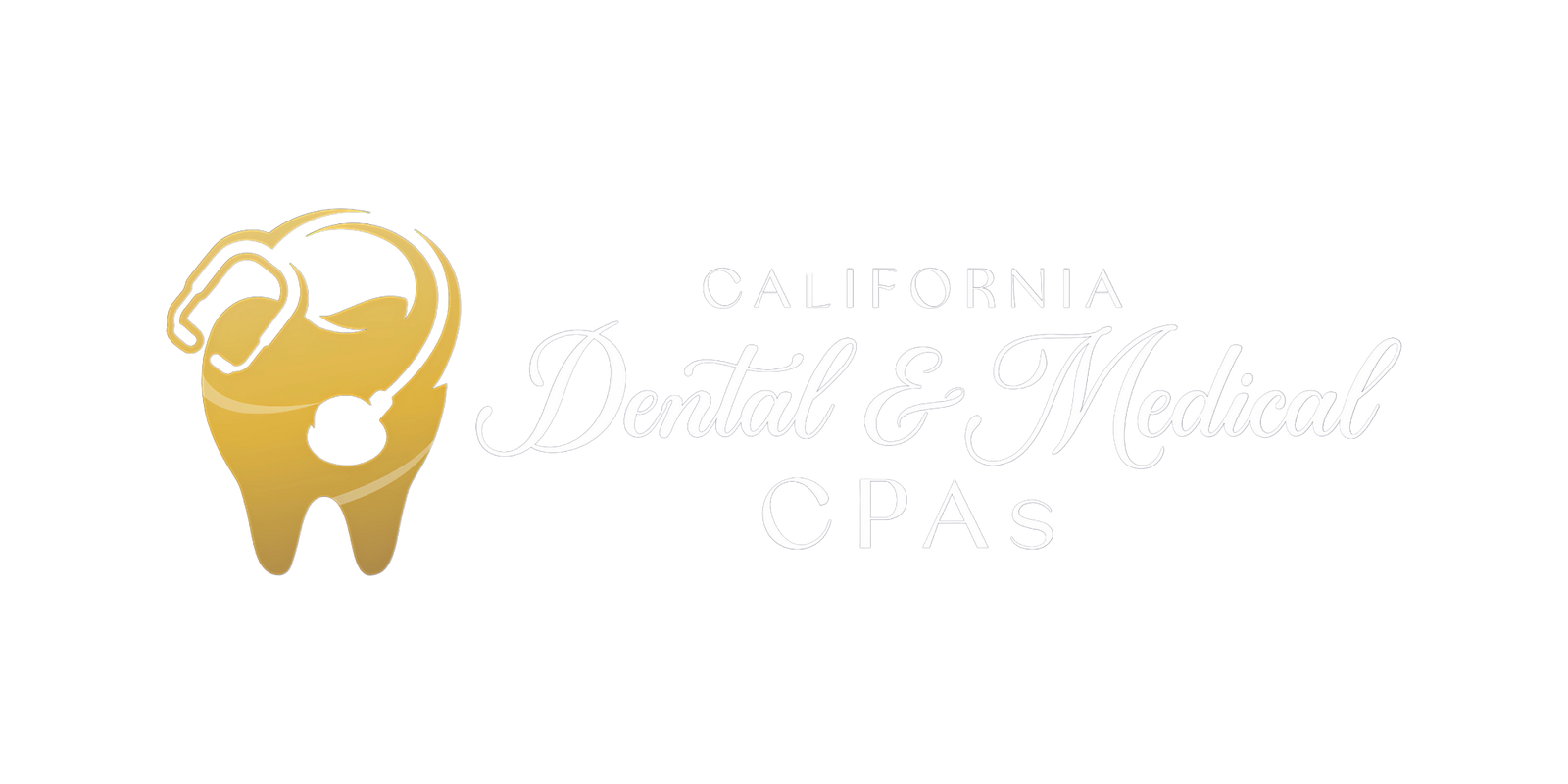This guide talks about tax planning for dentists in California. It covers smart ways to handle your money, helping you save on taxes and grow your dental practice. We’ll look at different strategies, from how you set up your business to planning for retirement. The goal is to help you keep more of your hard-earned money and build a solid financial future.
Key Takeaways
- Choosing the right business setup, like an S Corp or LLC, can really change your tax bill.
- Using retirement plans like 401(k)s and Cash Balance plans helps you save a lot on taxes now and for the future.
- You can save money by claiming deductions for equipment and other business costs.
- Smart moves like hiring family members or using the 14-day rental rule can lower your taxes.
- Giving to charity or saving for college through special accounts can also bring tax benefits.
Optimizing Dental Practice Business Structure for Tax Efficiency

Choosing the right business structure is a critical first step for Optimizing Dental Practice Business Structure for Tax Efficiency. It can significantly impact your tax liability and overall financial health. Let’s explore some key considerations.
Choosing the Right Entity: S Corp vs. LLC
Deciding between an S Corp and an LLC involves weighing several factors. An LLC offers simplicity and flexibility, while an S Corp can potentially reduce self-employment taxes. The best choice depends on your specific circumstances, including income level and risk tolerance.
- LLC (Limited Liability Company): Simpler to set up and maintain, offers pass-through taxation (profits taxed at the individual level).
- S Corp (S Corporation): More complex, allows you to be an employee of your own corporation, potentially reducing self-employment tax.
- Consider your long-term goals and growth plans when making this decision.
Benefits of Dentistry Professional Corporations (DPC) and Holding Corps
For dentists, a Professional Corporation (DPC) is often the preferred structure. It provides liability protection and can facilitate tax planning strategies. A holding company can further enhance asset protection and provide additional tax benefits. A dental CPA can help you decide if this is the right move for your practice.
- DPC: Offers liability protection specific to your profession.
- Holding Company: Can own assets, providing an extra layer of protection from lawsuits.
- Allows for income splitting and deferral opportunities.
Choosing the right structure can be complex. It’s important to consult with a qualified professional to determine the best fit for your practice.
Leveraging Family Trusts for Wealth Transfer
Family trusts can be a powerful tool for wealth transfer and estate planning. By strategically using trusts, you can minimize estate taxes and ensure your assets are distributed according to your wishes.
- Grantor Retained Annuity Trusts (GRATs): Can be used to transfer assets to family members while minimizing gift tax.
- Irrevocable Life Insurance Trusts (ILITs): Can hold life insurance policies, keeping the proceeds out of your taxable estate.
- Generation-Skipping Trusts: Allow you to transfer assets to grandchildren, avoiding estate tax at your children’s generation.
Maximizing Qualified Retirement Plan Contributions for Dentists

It’s important to Maximize Qualified Retirement Plan Contributions for Dentists to secure your financial future and reduce your current tax burden. Let’s explore some effective strategies.
Strategic Use of 401(k)s and IRAs
401(k)s and IRAs are foundational retirement savings tools. As a dentist, you can use both to your advantage.
- 401(k)s: If you’re running a dental practice, consider a solo 401(k). This allows you to contribute both as an employee and as an employer. This dual role can significantly increase your total contribution amount.
- Traditional IRAs: Contributions may be tax-deductible, depending on your income and whether you (or your spouse) are covered by a retirement plan at work. This can lower your taxable income in the contribution year.
- Roth IRAs: While contributions aren’t tax-deductible, qualified withdrawals in retirement are tax-free. This can be a great option if you anticipate being in a higher tax bracket in retirement.
Key Insight: Maxing out your 401(k) and IRA contributions each year is a simple yet powerful way to reduce your taxable income and build a substantial retirement nest egg.
Unlocking Savings with SEP and SIMPLE IRAs
SEP and SIMPLE IRAs are excellent options for self-employed dentists or those with small practices. They offer simpler administration compared to 401(k)s.
- SEP IRA: A Simplified Employee Pension (SEP) IRA allows you, as the employer, to contribute up to 20% of your net self-employment income, with contributions being tax-deductible. This is a great way to manage your dental practice’s finances.
- SIMPLE IRA: A Savings Incentive Match Plan for Employees (SIMPLE) IRA allows both you and your employees to contribute. While the contribution limits are lower than a SEP IRA, it can be an attractive option for practices with employees.
- Contribution Flexibility: Both SEP and SIMPLE IRAs offer contribution flexibility, allowing you to adjust contributions based on your practice’s profitability each year.
High-Impact Cash Balance Pension Plans
Cash balance pension plans are defined benefit plans that can allow for significantly higher contributions compared to other retirement plans. They are particularly beneficial for dentists later in their careers who want to catch up on retirement savings.
- Higher Contribution Limits: Cash balance plans allow for much larger tax-deductible contributions, potentially sheltering a substantial portion of your income.
- Predictable Benefits: Despite being a defined benefit plan, cash balance plans offer a more predictable benefit structure compared to traditional defined benefit plans. Each participant has a hypothetical account balance that grows at a guaranteed rate.
- Tax Advantages: Contributions are tax-deductible, and the assets grow tax-deferred, providing significant tax advantages. Be sure to understand S corporation compensation when considering this option.
Capitalizing on Deductions: Equipment and Operations

Section 179 and Bonus Depreciation for Dental Equipment
Dental practices often require significant investments in equipment. Section 179 of the IRS code allows you to deduct the full purchase price of qualifying equipment, like dental chairs or X-ray machines, up to a specified limit, in the year of purchase. This can significantly reduce your taxable income in the short term.
Bonus depreciation offers another avenue for accelerated depreciation. It allows you to deduct a large percentage of the cost of new or used equipment in the first year it’s placed in service. For example, if you purchase a new CEREC machine, you could potentially deduct a substantial portion of its cost immediately, rather than depreciating it over several years. Make sure to check the latest IRS guidelines for Section 179 and Bonus Depreciation for Dental Equipment limits and eligibility requirements, as they can change.
Qualified Business Income (QBI) Deduction Benefits
The Qualified Business Income (QBI) deduction, under Section 199A, can provide a significant tax break for dentists operating as sole proprietorships, partnerships, or S corporations. This deduction allows eligible taxpayers to deduct up to 20% of their qualified business income.
To maximize this benefit, it’s important to accurately calculate your QBI and understand any limitations based on your taxable income. For high-income earners, there are specific rules and thresholds that may reduce or eliminate the deduction. Careful planning and documentation are key to claiming the full QBI deduction benefits.
Comprehensive Business Expense Deductions
Beyond equipment, many day-to-day operating expenses of a dental practice are fully deductible. These include:
- Rent or mortgage payments for your office space
- Utilities (electricity, water, gas)
- Salaries and wages paid to employees
- Professional fees (legal, accounting, consulting)
- Insurance premiums (liability, malpractice, property)
It’s important to maintain meticulous records of all business expenses to support your deductions. Using accounting software and working with a tax professional can help you track expenses accurately and ensure you’re claiming all eligible deductions.
Remember, proper documentation is crucial. Keep all receipts, invoices, and bank statements organized. This will make tax preparation much easier and help you avoid potential issues during an audit.
Creative Tax Strategies for Dentists

Employing Family Members for Tax Advantages
Employing family members can be a smart tax strategy, but it needs to be done right. You can deduct wages paid to family members as a business expense, provided the work is legitimate and the wages are reasonable for the services provided. For example, hiring your child to handle administrative tasks, social media, or cleaning duties in your dental practice can shift income to a lower tax bracket. Make sure to keep detailed records of hours worked and tasks performed to support the deduction. This is a great way to reduce your overall tax burden while helping family members earn income.
Utilizing the 14-Day Rental (Augusta) Rule
The 14-day rental rule, sometimes called the Augusta rule, allows you to rent out your home for up to 14 days per year without reporting the rental income. This can be particularly useful if you host meetings or events related to your dental practice. Imagine renting your home to your practice for a staff retreat or a continuing education seminar. The practice pays rent to you, which is a deductible business expense for the practice, but the rental income is tax-free to you personally. Here are some key considerations:
- Keep detailed records of the rental agreement.
- Ensure the rent is reasonable for the location and amenities.
- The rental should be for legitimate business purposes.
This strategy can provide a significant tax benefit, especially if you have a home that is well-suited for hosting events. It’s a simple way to extract value from an asset you already own, tax-free.
Remember to consult with a CPA for physicians to ensure compliance with all IRS regulations. These dental accounting strategies can help you optimize your tax situation. A specialized CPA can provide tailored advice.
Strategic Philanthropy and Education Savings
Donor Advised Funds (DAFs) for Charitable Giving
Donor Advised Funds (DAFs) are an increasingly popular tool for dentists looking to integrate charitable giving with their tax planning. A DAF allows you to make a contribution, receive an immediate tax deduction, and then recommend grants to qualified charities over time. This provides flexibility and control over your philanthropy. For example, a dentist could donate appreciated stock to a DAF, avoiding capital gains taxes and receiving a deduction for the fair market value of the stock. This can be a smart way to discuss critical issues while also supporting causes you care about.
Tax Benefits of 529 College Savings Plans
529 plans are designed to encourage saving for future education expenses. Contributions to a 529 plan are not federally tax-deductible, but earnings grow tax-free, and withdrawals are tax-free if used for qualified education expenses. Many states also offer state tax deductions or credits for contributions. For California dentists, this can be a significant benefit, especially when planning for children’s or grandchildren’s education. Consider front-loading a 529 plan to maximize the tax-free growth potential. Leveraging Charitable Contributions and 529 Plans for Tax Savings can be a great way to reduce your overall tax burden while investing in the future.
It’s important to remember that while 529 plans are primarily for education, there are some provisions that allow for penalty-free withdrawals under certain circumstances, such as if the beneficiary receives a scholarship. Always consult with a financial advisor to understand the specific rules and regulations.
Here are some key benefits of using 529 plans:
- Tax-free growth and withdrawals for qualified education expenses.
- Potential state tax benefits.
- Flexibility to change beneficiaries within the same family.
It’s possible to help students get a good education and also be smart with your own money. This idea is called strategic philanthropy, or smart giving. It lets you support important causes while also planning for your own financial future, like saving for college. Ready to see how you can make a positive impact and boost your savings? Check out our website now!
Conclusion: Your Path to Financial Well-being
So, that’s the rundown. Tax planning isn’t just a yearly chore; it’s a big part of how well your dental practice does and how secure your own money situation is. By thinking ahead about taxes, you can save more, pay less in taxes, and make sure your hard-earned money works for you. It’s about being smart with your finances, not just checking off boxes. Getting help from a CPA who knows about dental practices can really make a difference. They can help you figure out what’s best for your specific situation, so you can focus on your patients and your practice.
Frequently Asked Questions
Why is picking the right business structure so important for my dental practice?
Choosing the best business setup, like an S Corp or LLC, is really important for dentists. It helps save money on taxes and protects your personal belongings. A CPA can help you figure out which one is right for your practice.
Can retirement plans really help dentists save on taxes?
Yes, retirement plans like 401(k)s, IRAs, SEP IRAs, and SIMPLE IRAs are great ways for dentists to save money for the future and lower their taxable income now. Cash Balance Pension Plans can also help you save a lot more.
What kind of deductions can dentists claim for their practice?
Absolutely. You can deduct the cost of new dental equipment using Section 179 and Bonus Depreciation. Also, the Qualified Business Income (QBI) deduction and other general business expenses can significantly reduce your tax bill.
Are there any clever ways to save on taxes that dentists should know about?
Yes, you can hire family members to work in your practice and pay them a reasonable salary, which can create tax benefits for both you and your family. Also, using the ’14-Day Rental Rule,’ sometimes called the Augusta Rule, can let you rent out your home for business meetings for a short time each year without paying tax on that rental income.
How can charitable giving and saving for college help with taxes?
Yes, Donor Advised Funds (DAFs) let you give money to charity and get a tax deduction right away, even if the money is given to the charity later. Also, 529 College Savings Plans offer tax benefits for saving for education.
How does a CPA specializing in dental practices help with tax planning?
A CPA who knows a lot about dental practices can guide you through complex tax laws, find all possible deductions, and help you plan your finances to pay less in taxes legally. They act as a trusted advisor for your financial health.
How often should dentists review their tax planning strategies?
Tax planning should be an ongoing process, not just something you do at the end of the year. Regular check-ins with your CPA can help you adjust to new tax laws and changes in your practice, making sure you always use the best strategies.
What should dentists do to stay updated on tax law changes?
Tax rules change often, so staying informed is key. Your CPA will keep you updated on new laws and how they might affect your dental practice, helping you to always be in line with the rules and take advantage of new opportunities.






